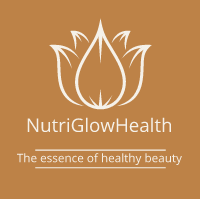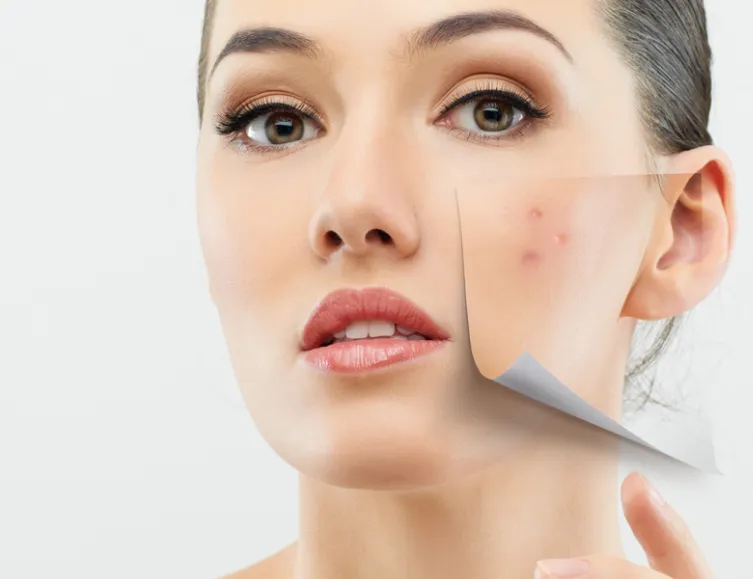If you’re dealing with the frustration of acne, know that you’re not alone. Acne is a common skin condition that affects millions of people. But what exactly is acne? Essentially, it’s a situation where your hair follicles become clogged with oil and dead skin cells. This can lead to a range of issues – from blackheads and whiteheads to more severe forms like pimples and cystic lesions.
A mix of factors usually jump-starts this unwanted skin party. Hormones can play a serious role, especially during puberty, which explains why teenagers often get a bad case of acne. However, adults aren’t off the hook. Lifestyle choices, including diet and stress levels, often continue the battle against clear skin far beyond the teen years.
Identifying what triggers your acne is like setting GPS coordinates to your destination – it points you in the right direction for solutions. That might mean changing up your diet, managing stress better, or reevaluating your skincare products. Every individual’s skin is unique, so finding your acne triggers is a personal journey. And for those of you looking for more natural solutions in this journey, I’ve got good news.
Nature has gifted us with aloe vera, a true ally in the fight against acne. This plant is known for soothing sunburns, but its benefits extend much further, especially when it comes to skin care. So let’s gear up to explore how this natural remedy can keep your skin clear and healthy.
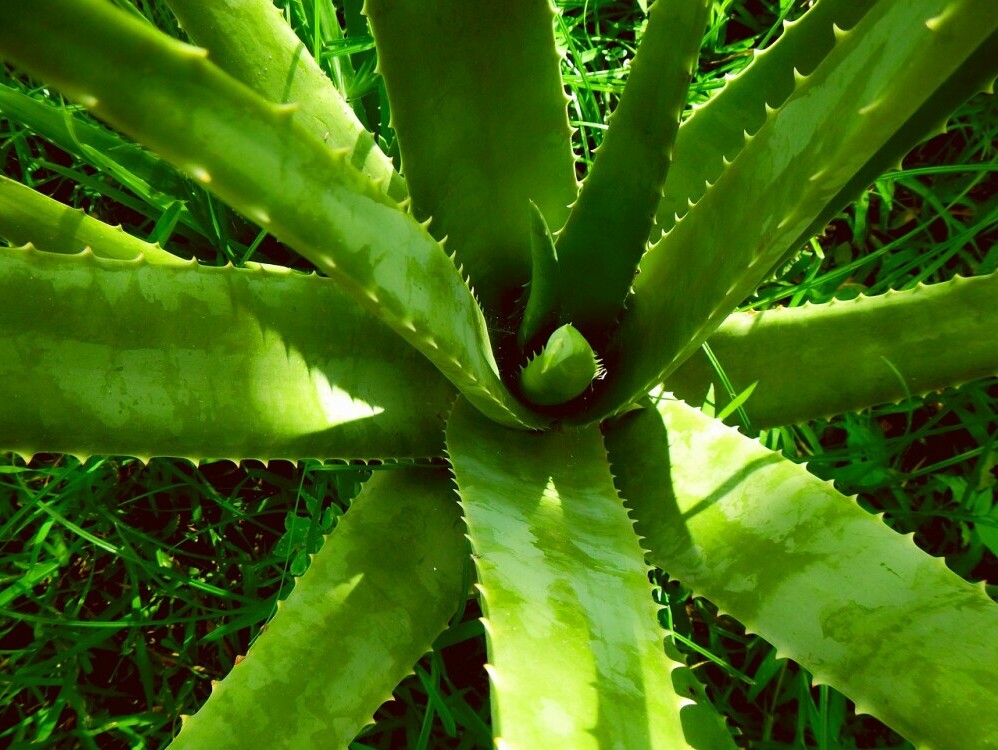
Natural Remedies for Acne: The Power of Aloe Vera
When it comes to treating acne naturally, you can’t overlook the benefits of aloe vera. This plant isn’t just for sunburns; it’s a powerhouse for skin health, especially if you’re dealing with pesky pimples. Aloe vera gel, which comes from the leaves of the aloe plant, is rich in active compounds that can help soothe and heal the skin.
In my experience, incorporating aloe vera into your regular skincare routine can make a significant difference. You can apply aloe gel directly to your skin as a moisturizer, mix it with other natural ingredients to create a DIY face mask, or look for skincare products that list aloe as a main ingredient. It’s gentle enough for daily use and can be particularly calming if your skin is irritated from other acne treatments.
You’re probably wondering about the evidence backing aloe vera’s effectiveness. I’m all about facts, so here’s what you should know: several studies have confirmed that aloe vera contains anti-inflammatory components which can reduce the redness and swelling associated with acne. Also, its antibacterial properties are a boon in fighting the bacteria that contribute to breakouts.
But aloe vera’s skin benefits don’t stop there. It’s also brimming with antioxidants, enzymes, and vitamins A and C, all of which are great for your skin’s health. Plus, because aloe vera has a hydrating effect without feeling greasy, it’s a hit for those with oily skin types looking to maintain moisture balance without exacerbating acne.
Now, we’re going to soon explore how Revamin Acne Cream could complement the natural treatment you offer to your skin with aloe vera. So stay tuned if you’re keen on understanding more about your options for clearer, smoother skin.
Revamin Acne Cream: A Deep Dive into Its Benefits and Usage
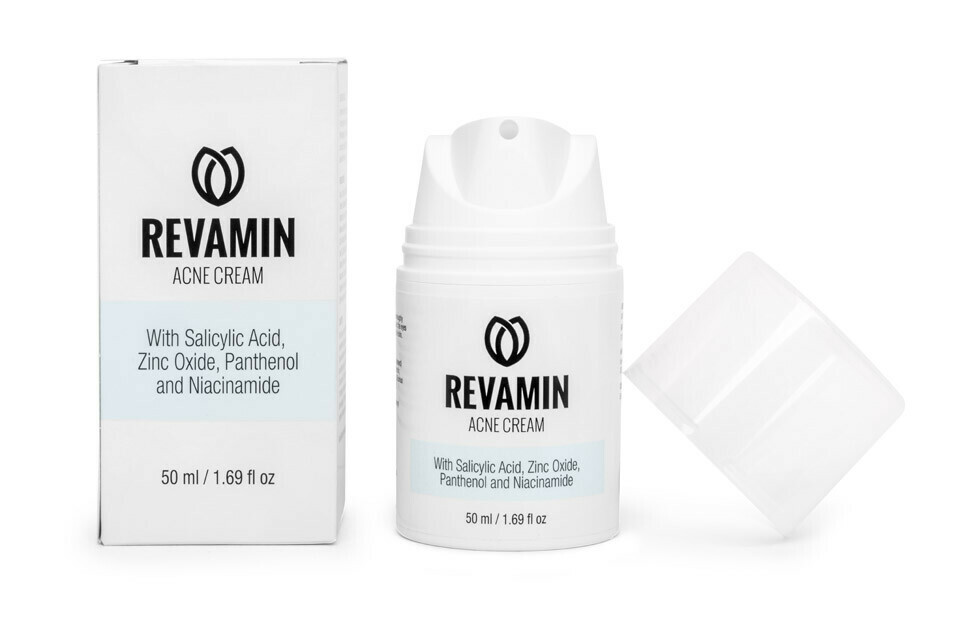
If you’re grappling with the annoyance of acne, I want to introduce you to a potential game-changer: Revamin Acne Cream. This isn’t just a standard over-the-counter pimple zapper; it’s an advanced solution tailored for those with problematic skin, promising to bring back that coveted clear complexion.
Revamin Acne Cream stands out because it tackles various types of acne, regardless of the underlying cause. So, whether you’re dealing with hormonal havoc, stress-triggered flare-ups, or simply unpredictable outbreaks, this cream is designed to be your ally.
The cream boasts of its ability to penetrate deep into the skin, providing nourishment to repair and soothe afflicted areas. It’s packed with ingredients that are not only about banishing current blemishes but also about preventing new ones. From reducing excess sebum production to minimizing redness and inflammation, Revamin aims to deliver all-round care for your skin.
Now, let’s talk about how to integrate Revamin Acne Cream into your skincare routine. You’ll want to apply it to clean skin, preferably after washing your face with a gentle cleanser. Use it twice daily, morning and night, applying a thin layer to the affected areas. Consistency is key with this product: regular usage is critical for reducing pimples and imperfections over time. And guess what? There’s real potential to see changes in your complexion with diligent use.
A reminder here: everyone’s skin is unique, so while Revamin Acne Cream is crafted to suit a range of skin types, your experience may vary. It’s always wise to monitor your skin’s response and adjust usage accordingly. And if in doubt, consulting with a dermatologist can provide personalized advice.
Supplementing Your Skincare: Zinamax and Nonacne
I’m going to wrap up our skin clarity journey with a look at how supplements can bolster your fight against acne. If you’re someone who’s tried topical treatments with limited success, or if you just want to enhance your skincare routine, then there’s something you should consider: supplementing with products like Zinamax and Nonacne.

Now, Zinamax isn’t just any supplement. It’s a well-thought-out blend of anti-inflammatory and antibacterial ingredients that aims to improve your skin from the inside out. Remember, when you’re dealing with acne, it’s not just about what you put on your skin; it’s also about what you put in your body. By incorporating Zinamax’s plant extracts, vitamins, and minerals renowned for their anti-acne properties, you’re going beyond surface-level treatment.
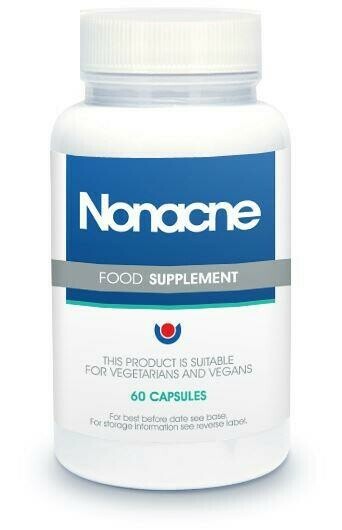
And Nonacne? It’s got a track record of its own. Users—both teenagers and adults—have been turning to it for that coveted smooth and beautiful skin. It echoes the sentiment that the battle against acne doesn’t end with face washes or creams. Sometimes, your skin needs the internal support that only the right combination of ingredients can provide.
In my opinion, considering your acne treatment holistically can make all the difference. That means you shouldn’t ignore the potential of supplements that target the problem systemically. Zinamax and Nonacne could be the game-changers in your skincare regimen—reducing sebum production, soothing inflammation, and providing essential nutrients that promote skin health.
So, have you ever wondered if there’s more you could do to help your skin? Guess what? There is. Think of supplements like these as part of a broader strategy to manage your acne. Remember, perseverance is key, and the right combination of treatments is unique for everyone. You might just find that including a supplement is your next step toward a clearer complexion.
I really hope that you’ve found these insights helpful in your skincare journey. And if you decide to try Zinamax, Nonacne, or any other product mentioned, remember to give it time to see the results. Your first attempt doesn’t need to be your last—but it could be the beginning of a new chapter for your skin. Choose something that resonates with you, and don’t worry too much about testing different solutions.
